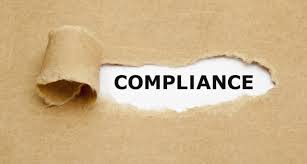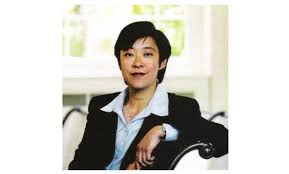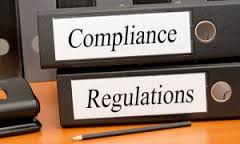DOJ’s Compliance Counsel & Compliance Expectations
 The Justice Department’s hiring of Hui Chen as the new Compliance Counsel is an important development in DOJ’s prosecution of corporate defendants. It is not clear yet what impact Ms. Chen will have. At a recent event at NYU (video here), Andrew Weissmann, the head of the Fraud Section, and Ms. Chen spoke about the new compliance position.
The Justice Department’s hiring of Hui Chen as the new Compliance Counsel is an important development in DOJ’s prosecution of corporate defendants. It is not clear yet what impact Ms. Chen will have. At a recent event at NYU (video here), Andrew Weissmann, the head of the Fraud Section, and Ms. Chen spoke about the new compliance position.
The video provides important information. Ms. Chen outlines four important general factors she examines when assessing the effectiveness of a compliance program.
The four criteria she outlines are very instructive. They include:
- Does the compliance program demonstrate thoughtful design to address current risks?
- How operational is the program (not a paper program)?
- How well are stakeholders working with each other (Auditor, HR, Legal, CFO, CEO, Senior management)?
- How well is the program resourced?
In the first category, a company has to show that its compliance program is carefully designed in relation to its risk profile. A “thoughtful design” to a compliance program entails the careful consideration of risks, the company’s overall operations, and specific policies and procedures tailored to the company’s risk profile.
The second question is an important inquiry focusing on the actual operation of the compliance program. The question ties into the Justice Department’s complaint that many companies have not operationalized their compliance program but rely on a paper compliance program. The Justice Department has frequently criticized companies for failing to move beyond a paper program because of the resources and leadership commitment needed to implement a program.
Ms. Chen’s third question reflects her nuanced understanding of ethics and compliance programs. She recognizes the fact that a compliance program requires consistent communication and coordination among key compliance stakeholders and functions. Her emphasis of this factor should support CCOs as they seek internal support in their companies.
Finally, Ms. Chen cites the need for focus on the allocation of sufficient resources to support a compliance function. Again, her identification of this factor is important since CCOs struggle daily to secure adequate resources to implement effective compliance strategies.
 As always, the jury is out on exactly what impact DOJ’s compliance counsel will have on DOJ’s prosecution strategy. DOJ’s compliance counsel could have a significant impact on FCPA and other significant cases. If companies are awarded increased credit for a compliance program because of Ms. Chen’s nuanced understanding of compliance programs, companies may have increased incentives to review and enhance their compliance programs.
As always, the jury is out on exactly what impact DOJ’s compliance counsel will have on DOJ’s prosecution strategy. DOJ’s compliance counsel could have a significant impact on FCPA and other significant cases. If companies are awarded increased credit for a compliance program because of Ms. Chen’s nuanced understanding of compliance programs, companies may have increased incentives to review and enhance their compliance programs.
Ms. Chen has an opportunity to advance the importance of compliance programs and hopefully she will do so. CCOs should seek to connect and hopefully communicate with Ms. Chen.
Ms. Chen has encouraged CCOs to communicate with her and the profession should take the opportunity to meet with her and discuss important issues. Ms. Chen is an advocate for compliance programs, and to the extent, she can influence DOJ to credit and provide increased compliance incentives, corporate ethics and compliance programs will improve.















Great and helpful article.